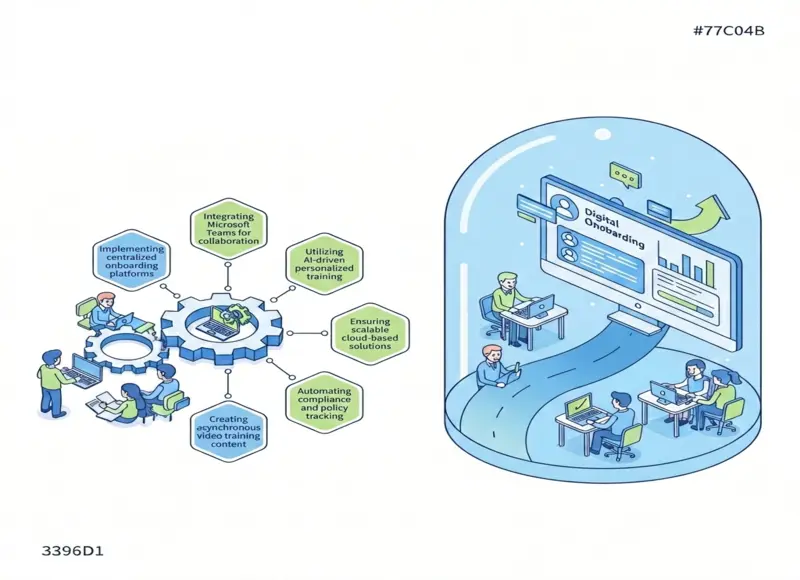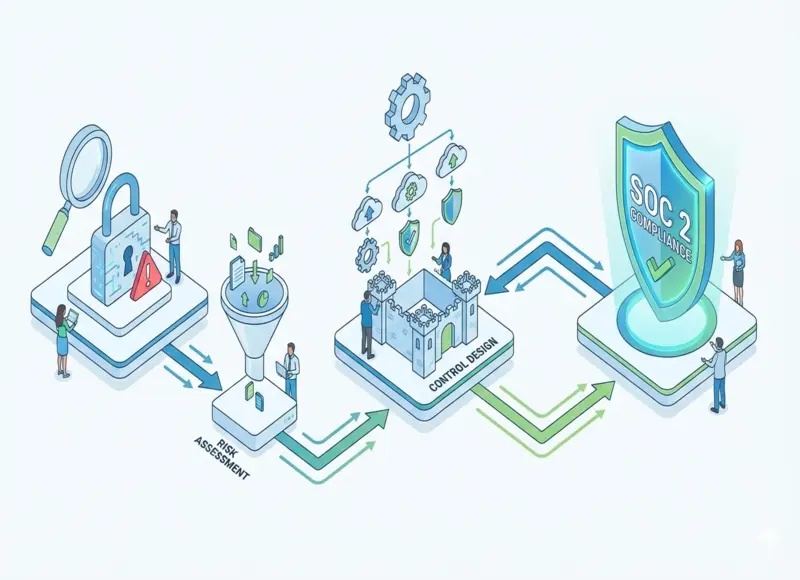Table of Contents
Unleash the full potential of your website with our comprehensive SEO guide. Learn the ins and outs of website optimization and harness the power of SEO for your online success.

Having a website in today's age is important for businesses and individuals. However, creating a site doesn't mean your work is done. To maximize the organic traffic that it receives and improve its online presence, you have to optimize it for search engines.
This article will provide a comprehensive guide on how to do that. But before we start with the guide, let's discuss SEO more to help you understand it better.
Understanding SEO And Its Importance For Your Site
SEO stands for Search Engine Optimization. It involves multiple techniques to improve a website's ranking among SERPs (Search Engine Result Pages).
If done correctly, your site will appear among the top results when users search for a relevant query. This has multiple benefits for your site, which are enough to describe the importance of SEO.
- Improved visibility to users, resulting in more organic traffic and growth.
- Targeted traffic to attract only a specific type of user. i.e., Those who are looking for products or services related to yours.
- Credibility and trust build up as websites rank higher and are usually seen as more trustworthy than others.
Now that you know SEO and its importance for your site, let's start with the guide.
How Do You Optimize Your Website For Search Engines?
SEO for a website has three categories. Below, we will mention each of its categories, discuss the elements of that category in detail, and see how you can fulfil each element.
On-Page SEO
This type of SEO focuses on improving the elements of a site that are within your control. There is nothing external involved. Everything that has to be done will be done according to what you can see on your site. That said, the following are the elements of on-page SEO.
Creating High-Quality Content
The backbone of any website is its content. Search engines prioritize ranking sites that have good content. You must create highly informative and helpful content for users.
Besides this, other things that make a website's content "High Quality" are its readability, clarity, and uniqueness. Aim to achieve high readability by using easy words rather than complex ones. Keep the structures of your sentences simple and maintain a chronological order for the information you're conveying.
Lastly, try to write everything independently, without copying or taking influence from external sources.
Doing these things will help you craft content that search engines and users prefer. This will improve the chances of your website getting ranked higher. If, for some reason, you struggle to achieve all the qualities above in your website's content, remember that a a rephrasing tool can help. Such a tool will rephrase your content and make it better. You can see how it does that and try to do it yourself the next time you’re writing.
Keyword Research And Incorporation
Keywords play a big role in the search engine optimization of a website. Learn how local SEO Sydney experts utilize blogging strategies to optimize search rankings effectively. For those of you who are unfamiliar with what they are, keywords are the words or phrases that users use when they’re searching for a query.
You have to identify keywords that are relevant to your website and incorporate them. They can be used in the content, the URL, and different pages of your site. Add them wherever they look and feel natural. Doing so will make your site pop up in front of users when they search for a query that includes the keywords.Many search engine marketing companies also use this strategy to drive better results for their clients..
That being said, to find the right ones, you can use tools like Ahrefs and Semrush. One thing that you should keep in mind is that it's better to always prefer keywords that have high search volume and low difficulty.
Compelling Title Tags And Meta Descriptions
Title tags and meta descriptions are part of on-page SEO. These two things appear only in the search results when users search for a query. This is why it is important to make them as compelling as possible. Doing so will entice users to click and visit your website.
Title tags must be relevant to what's actually on your website's page. The length should be kept quite short as well. A maximum of 60-64 characters are recommended.
If it looks natural, you can also place a keyword in your title tag. To make it compelling, avoid any complexity and use only easy words.
Coming to the meta descriptions, they are usually 150-155 characters long. Keywords can be incorporated into them, too. To make them compelling, accurately describe briefly what your page is about. Provide just enough information about the page but not so much that the users don't even get curious.
If you need further help creating compelling title tags and meta descriptions, read this blog post by Search Engine Watch. Try to follow the example provided in it.
Off-page SEO
This type of SEO deals with external factors rather than the ones on your site itself. The following are its elements.
Acquiring Authoritative Backlinks
Backlinks work as a vote of confidence in the eyes of search engines. If you don't know what they are, they are the links other sites and sources add to their content to point readers to you.
If you get backlinks from authoritative sites (reputable ones with high organic traffic), your website's ranking will be influenced and increased.
Usually, backlinks are acquired through two ways:
- Outreach
- Guest posting
So, monitor relevant blogs in your website's niche and look for opportunities to acquire backlinks. Partnering with a reliable link-building agency can streamline this process and help you secure authoritative backlinks more effectively.
The more authoritative backlinks you can acquire, your site's ranking will be higher. Considering this, you have to put in continuous effort.
Promoting The Website On Social Media
Marketing your site on different channels, such as Social media, can help it reach new audiences and increase traffic. If done right, this can influence its ranking among SERPs.
There are numerous social media platforms that you can utilize to promote your website. Some of them are Facebook, Instagram, and LinkedIn. The best thing about them is that they're all free to use. Publish promotional content on each of them so you can bring in traffic from multiple sources.
Besides promotional content, you can also publish information that answers users' queries. Provide them with solutions to their problems, and they will most likely visit your website.
We're talking about social media marketing right now. Well, that's exactly correct; it is also part of off-page SEO.
Technical SEO
This is the third type of SEO, and it deals with optimizing the website to fulfil search engines' technical requirements. Below, we'll discuss its elements and how you can fulfil each.
Mobile Friendliness
Nowadays, more than half of the internet traffic is from mobile devices. This makes it important to have a mobile-friendly website. Search engines know this and prioritize ranking websites optimized for mobile phones.
You must ensure each site page can be browsed easily on a mobile device. A couple of the things you must consider while doing so are as follows.
-
The formatting of the website or page shouldn't change while making it mobile-friendly.
The placement of buttons must remain the same as well.
This may seem like it's a hard nut to crack but it isn't. Here's an easy guide by WebsiteBuilderExpert on how to make your website mobile-friendly.
Once you've optimized your site for mobiles, remember to test it out so you can be sure everything works well. To do that, head online and enter your site's URL into a mobile-friendly browser.
Page Loading Speed
The page loading speed of your website affects its ranking quite a lot. Users usually load up to a few seconds for a website to load. If it takes a long time to open, they just close it and move on to another site. This increases the bounce rate and signals to search engines that users dislike the site.
If it's the other way around and the site loading speed is high, users will stay and browse the site, signalling to search engines that they like it, which will improve the site's ranking among SERPs.
Here's what you can do to ensure your site loads quickly for everyone.
- Compress images that are present on the site.
- Allow the website to store cookies in the user's browsers.
- Use browser HTTP caching.
Good Website Structure
The structure of your website has to be good. It should be clear so it's easy for the users to understand. If you make it clear, the users and the search engine will easily understand what your website is about.
The rule of thumb for a good website structure is to use different buttons where they are needed and logically arrange everything. Doing all this improves users' navigation of your site. They find it easier to go through it and browse everything.
Final Words
SEO stands for search engine optimization. It improves the ranking of your website among SERPs and brings an increase in its organic traffic. There are three main types of SEO, each of which has different elements you must fulfil. In this article, we saw these types and how to satisfy each element to optimize your website.








